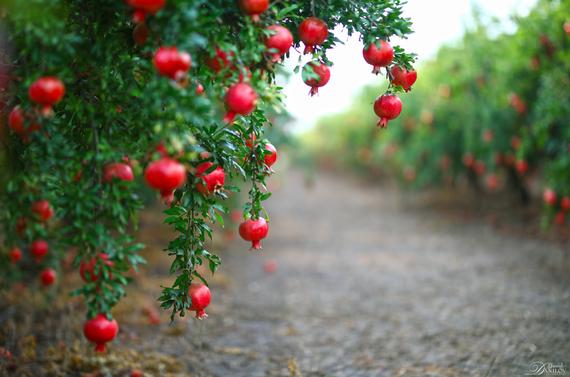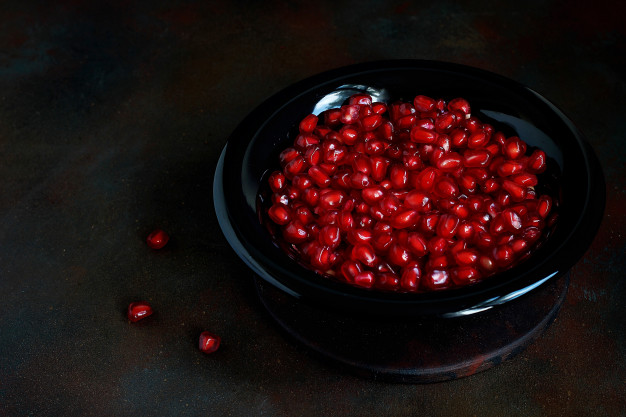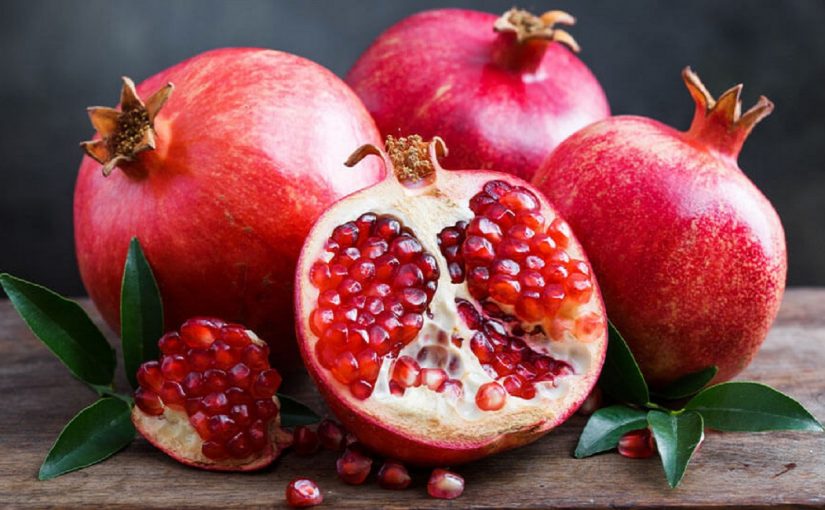7.11.2019
The pomegranate, whose name derives from the Latin malum (apple) and granatum (with seeds), is very common in Calabria and throughout the Mediterranean where it was probably introduced by the Phoenicians, as demonstrated by the other name of the pomegranate which was malum punicum (Punic apple, therefore coming from northern Africa).
HISTORY AND LEGEND
It was known by the Egyptians and the Phoenicians, in India and Africa it was used to defeat sterility as well as in ancient Greece and Magna Graecia, where it was also used as an anti-inflammatory, anti-diarrheal and vermifuge and was consumed by women or was offered to the Mother Goddess in rites of the Eleusinian mysteries. As a symbol of fertility and abundance it was commonly planted in front of the houses and local population ate its fruits because it brought luck and abundance, a tradition still in use in Calabria and in the South.

The Greek and Roman brides wore crowns with pomegranate flowers and it was tradition, still remained today in some Mediterranean countries, that the girls on the wedding day break a pomegranate and count the seeds that jump out, which represent the children they will have.
The pomegranate is sacred in all religions: for the Jews because it contains 613 seeds, which are the number of prescriptions of the Torah, for Muslims because it is the tree of paradise, for Christians, due to the ruby red color of the seeds, which represents the martyrdom of Christ and therefore the life that is reborn...
CULTURE AND MYTH
Already the good Homer, long before Carducci with his famous poem about this tree, spoke of the pomegranate in the seventh book of the Odyssey, when Ulysses in the Land of the Phaeceans (which was Calabria and precisely the area of Tiriolo, according to the historian Armin Wolf) describes the gardens that surround us the palace of King Alcinoo: «Therein grow trees, tall and luxuriant, pears and pomegranates and apple-trees with their bright fruit, and sweet figs, and luxuriant olives.”
The pomegranate in Calabria is also inextricably linked to the myth of Persephone (always depicted with a pomegranate in the hand), daughter of Demeter, goddess of fertility and agriculture, whose cult was widespread in Calabria magnogreca. Several temples were dedicated to her and to her mother Demeter and in their honor the rituals of the Eleusinian Mysteries were practiced.
Legend has it that Persephone, taken from her mother Demeter by Hades, was taken to the underworld, where by eating six pomegranate seeds she became a creature of that kingdom. From that moment the earth desertified itself, desperate Demeter sought her daughter and when he found her, he demanded from Hades that he return to his world, even if only for a short time. Since then Persefone lived six months in the underworld and six months on earth and nature flourished again with the seasons.
PROPERTIES
Its fruit, called “granatu” in dialect, has been known since ancient times for its therapeutic properties: powerful antioxidant, antibacterial, astringent and gastroprotective, it is rich in ellagic acid, a powerful antioxidant, and other polyphenols, flavonoids, phytoestrogens, vitamin C and mineral salts such as magnesium, sulfur, potassium, copper, phosphorus and iron.

Pomegranate lowers blood pressure, protects from sunlight, strengthens bones, helps fight free radicals, protects cells by preventing their damage and regenerating them, protects kidneys and liver from harmful toxins.
“U granatu” for its beauty, with its flowers and its autumn fruits full of red seeds similar to precious stones, and for its many medicinal properties, has always been considered a sacred symbol of life and fertility.
CONSUMPTION
Its shelled seeds and seasoned with lemon juice are an excellent and healthy side dish and go perfectly with desserts, savory dishes with dried fruit, cabbage and cereals, salads and seasonal fruit salads.
Pomegranate juice is also a precious concentrate of well-being. To extract it there is nothing simpler, it is enough to cut the peel of the fruit (more or less as one does with the oranges), breaking it in half and squeezing it with a normal juicer.


